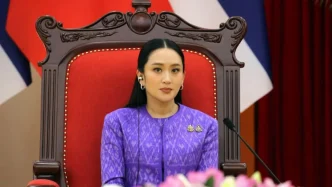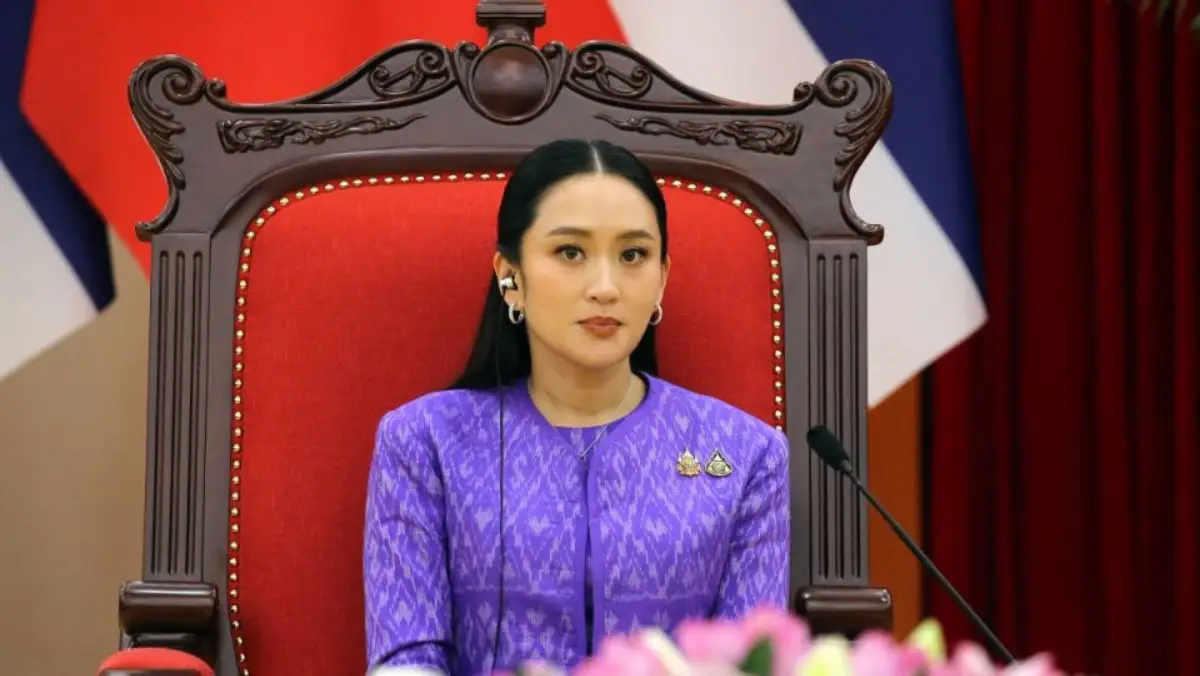Bangkok’s political landscape is simmering with tension as the Paetongtarn Shinawatra-led government braces for a critical cabinet reshuffle. With domestic challenges piling up alongside international scrutiny, the administration faces a pivotal moment to address public discontent and restore confidence in its leadership. The reshuffle, expected in the coming weeks, is seen as a litmus test for the government’s ability to navigate Thailand’s complex socio-political dynamics.
Domestic Discontent and Political Instability
At home, the Paetongtarn administration is grappling with widespread dissatisfaction over economic stagnation and perceived governance failures. Public frustration has mounted over rising living costs, with inflation hitting vulnerable communities hardest. Protests in Bangkok and other urban centers have called for decisive action on wage reforms and social welfare programs, while rural constituencies demand greater agricultural support amid fluctuating global commodity prices.
Political analysts suggest that the reshuffle offers a chance to bring fresh faces into key ministries, particularly those handling economic policy and public welfare. However, opposition parties have been quick to criticize the government, accusing it of prioritizing political alliances over merit in cabinet appointments. A prominent opposition figure remarked that “ reshuffling the same old faces won’t solve Thailand’s deep-rooted issues” during a recent rally in the capital, reflecting a broader public sentiment of skepticism.
Adding to the domestic pressure is the lingering influence of Thailand’s powerful military and monarchy, both of which have historically shaped political outcomes. While the government has sought to balance these forces, any misstep in the reshuffle could alienate key stakeholders, potentially destabilizing the fragile coalition that keeps Paetongtarn in power.
International Spotlight and Regional Implications
Abroad, Thailand’s government faces growing scrutiny over its human rights record and foreign policy stances. Western nations, including the United States and members of the European Union, have expressed concern over alleged restrictions on freedom of expression and the treatment of political dissidents. Reports of crackdowns on activists and media censorship have drawn criticism, with diplomats urging Bangkok to uphold democratic principles ahead of the reshuffle.
Thailand’s role in regional geopolitics also hangs in the balance. As a key player in ASEAN, the country is expected to mediate tensions in neighboring Myanmar, where post-coup violence continues to destabilize the region. Yet, critics argue that domestic distractions have hampered Thailand’s ability to take a leadership role. A senior ASEAN diplomat noted that “Thailand’s internal struggles are weakening its voice on critical issues like Myanmar” during a recent summit, highlighting the stakes of the upcoming changes in government leadership.
Trade relations add another layer of complexity. With Thailand’s economy heavily reliant on exports, maintaining strong ties with major partners like China, the United States, and Japan is crucial. The reshuffle could signal shifts in economic policy, particularly if new ministers push for protectionist measures or renegotiated trade agreements. For now, international observers are watching closely to see whether the government prioritizes economic reform or political expediency.
Economic Challenges and Public Expectations
Thailand’s economic woes remain a central issue as the reshuffle looms. The tourism sector, a cornerstone of the national economy, has yet to fully recover from the pandemic’s impact, despite government initiatives to attract visitors. Meanwhile, small businesses struggle with debt, and unemployment rates in urban areas like Bangkok remain stubbornly high. A recent report from the Thai Chamber of Commerce estimated losses in the retail sector alone at 12 billion Thai Baht (US$336 million) over the past year, underscoring the urgency of effective policy interventions.
Public expectations for the reshuffle are high, with many hoping for ministers who can deliver tangible results. Social media platforms in Thailand have buzzed with calls for technocrats over traditional politicians, reflecting a desire for expertise in addressing economic challenges. However, analysts caution that balancing competence with political loyalty will be a delicate task for Paetongtarn, given the coalition dynamics at play.
Beyond economics, the government must also tackle systemic issues such as corruption and inequality, which have long plagued Thai society. While there is no confirmed evidence of misconduct within the current administration, public perception of cronyism in political appointments could undermine trust if the reshuffle fails to prioritize transparency.
Potential Outcomes and Political Risks
The reshuffle’s outcome could reshape Thailand’s political trajectory for years to come. A successful realignment, with capable and popular figures appointed to key roles, might bolster the government’s credibility and quell public unrest. Conversely, a poorly executed reshuffle risks deepening divisions within the ruling coalition and emboldening opposition movements, potentially leading to snap elections or even street protests reminiscent of past political crises.
Speculation abounds over which portfolios will see changes. The ministries of finance, interior, and defense are often cited as critical battlegrounds, with each appointment carrying significant implications for policy direction and power dynamics. If unverified reports of internal disagreements within the coalition are accurate, the reshuffle could also expose fractures that have so far remained behind closed doors, though such claims remain speculative at this stage.
Historical precedent offers a cautionary tale. Previous Thai governments have stumbled during cabinet reshuffles, with missteps leading to public backlash and, in some cases, military intervention. While there is no indication of such extreme measures at present, the Paetongtarn administration must tread carefully to avoid repeating past mistakes.
Looking Ahead: A Defining Moment
As Thailand approaches this pivotal reshuffle, the Paetongtarn government stands at a crossroads. Balancing domestic demands with international expectations will require deft political maneuvering and a clear vision for the country’s future. For many Thais, the reshuffle is not just about changing faces but about addressing systemic challenges that have lingered for decades.
In Bangkok’s bustling streets, opinions vary on what the reshuffle might bring. Some express cautious optimism, hoping for policies that alleviate economic hardship, while others remain skeptical of meaningful change. As one street vendor in the capital put it, “We’ve seen reshuffles before—new ministers, same problems” during a recent conversation, capturing a sentiment of weary pragmatism.
With the eyes of both the nation and the world on Thailand, the coming weeks will test the Paetongtarn administration’s resolve. Whether the government can seize this opportunity to rebuild trust and chart a stable path forward remains an open question, one that will shape the country’s political and economic landscape for the foreseeable future.
















